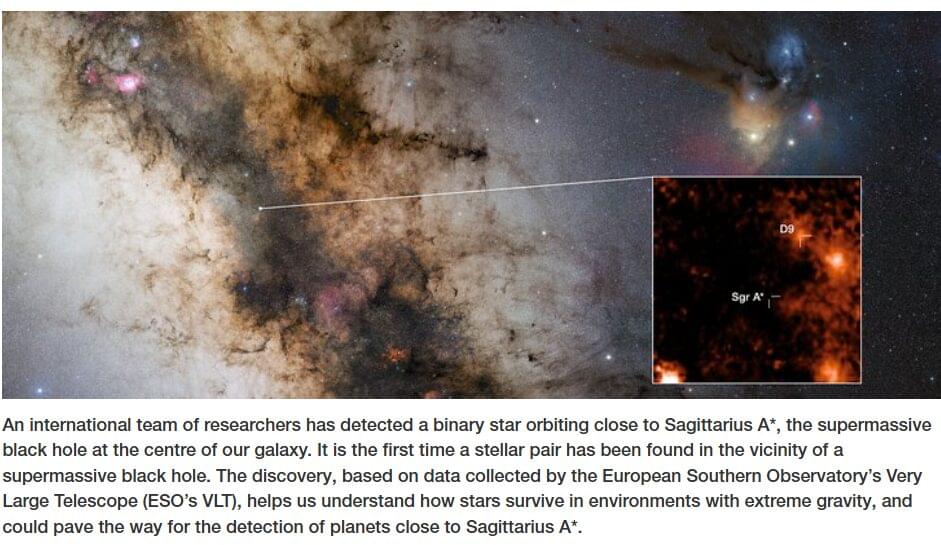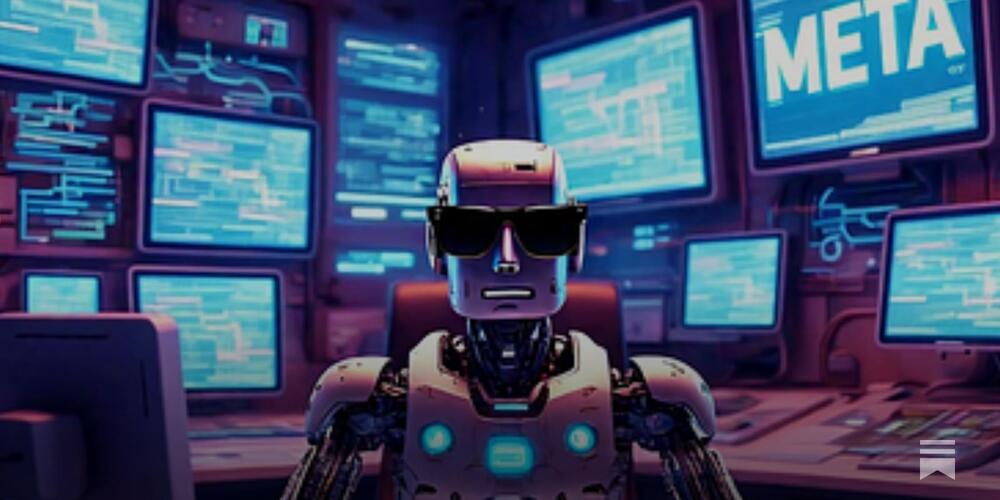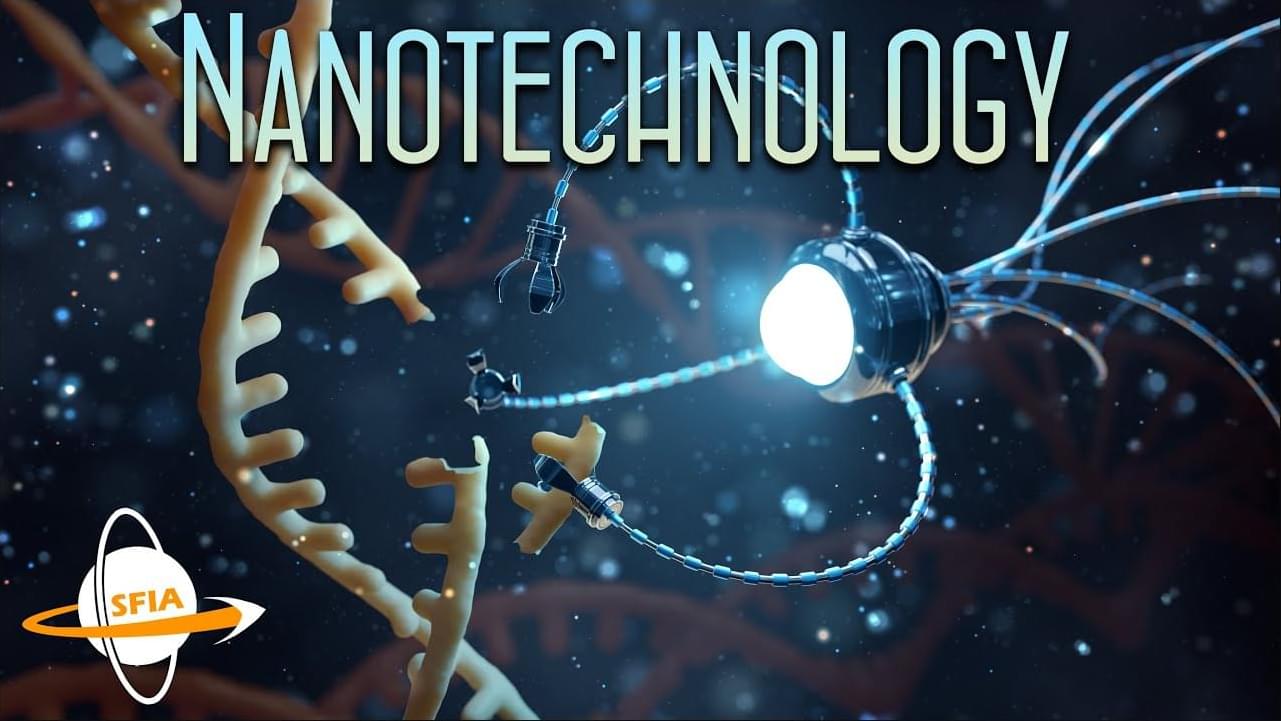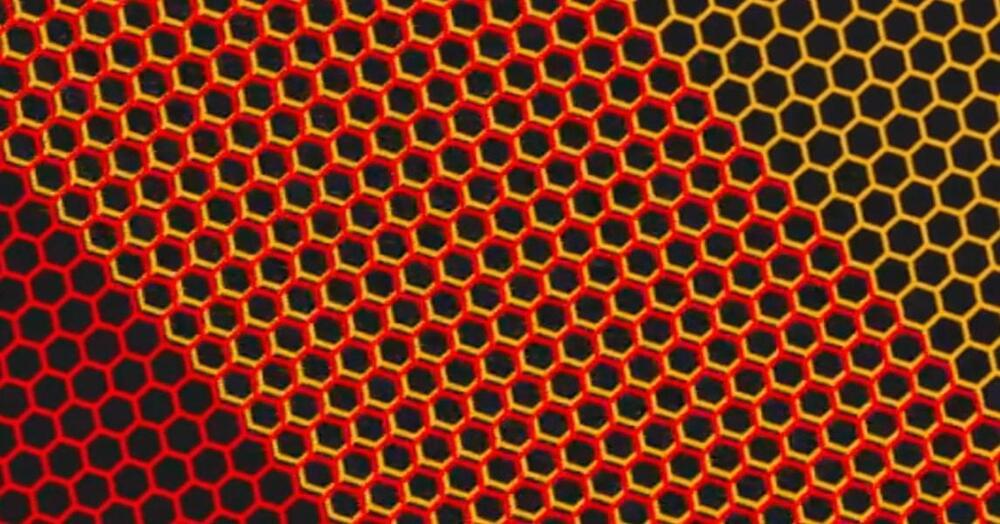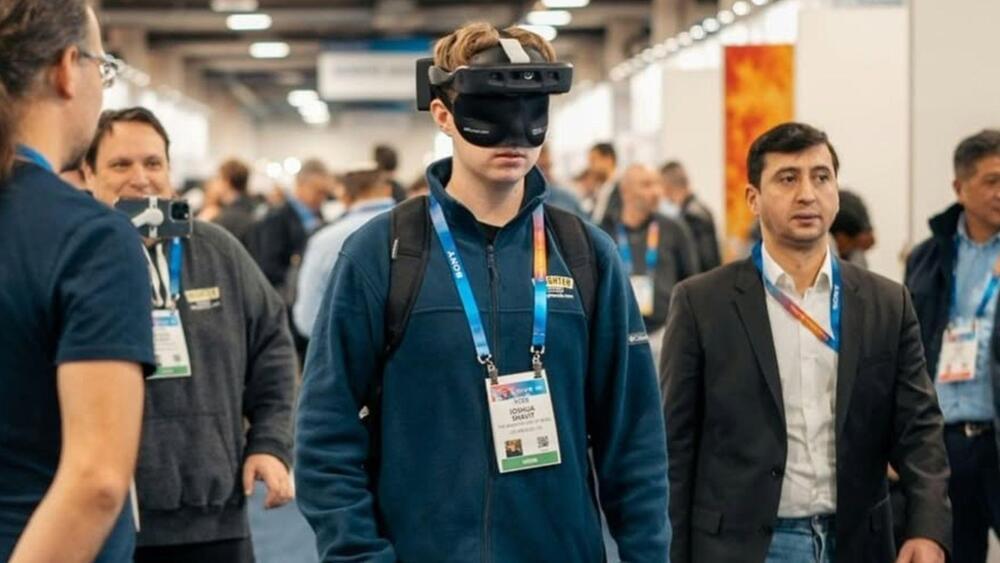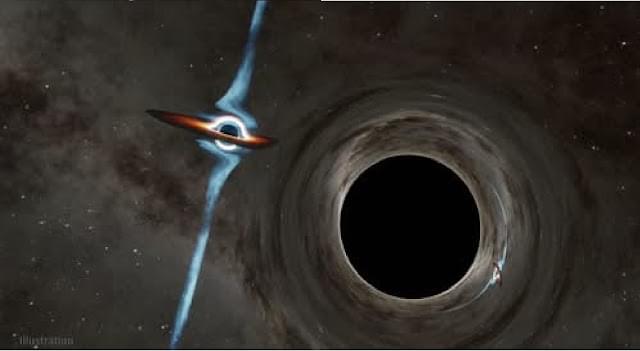Jan 12, 2025
First-ever Binary Star Found Near our Galaxy’s Supermassive Black Hole
Posted by Natalie Chan in category: cosmology
An international team of researchers has detected a binary star orbiting close to Sagittarius A*, the supermassive black hole at the center of our galaxy. It is the first time a stellar pair has been found in the vicinity of a supermassive black hole.
The discovery, based on data collected by the European Southern Observatory’s Very Large Telescope (ESO’s VLT), helps us understand how stars survive in environments with extreme gravity, and could pave the way for the detection of planets close to Sagittarius A*.
“Black holes are not as destructive as we thought,” says Florian Peißker, a researcher at the University of Cologne, Germany, and lead author of the study published in Nature Communications.
